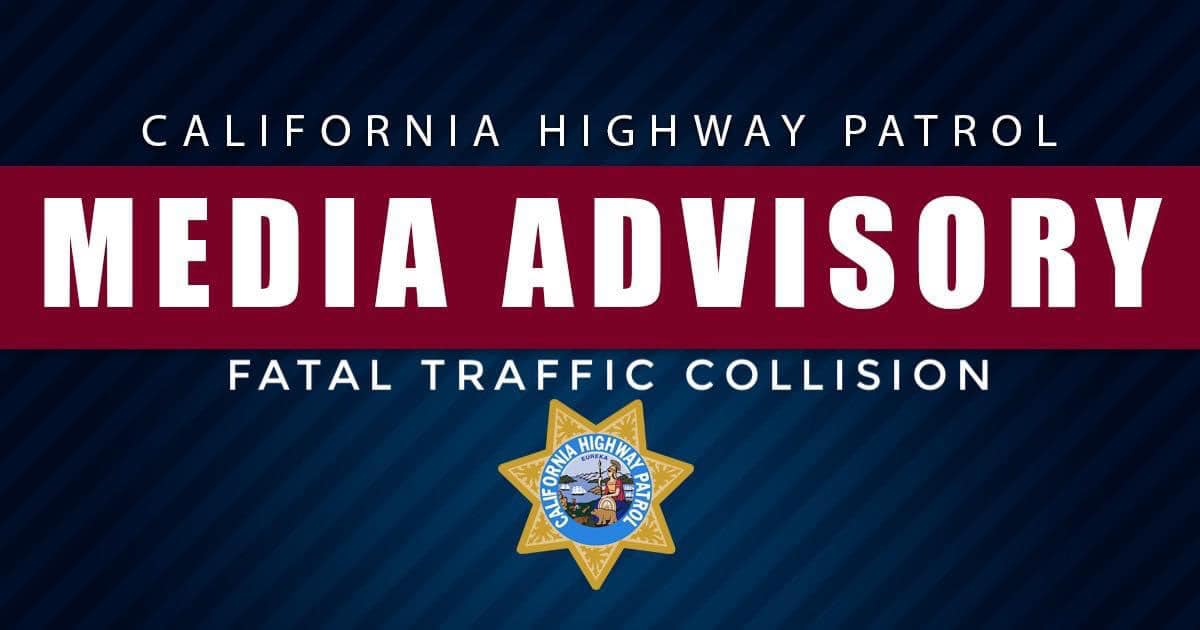Celebrate the Year of the Snake!
Presented by the Contra Costa Chinese School and Diablo Valley College Community Education
This weekend celebrate the Lunar New Year with Diablo Valley College Community Education and the Contra Costa Chinese School with a Lunar New Year Festival, Feb 8 10am-3pm at DVC, 321 Golf Club Road in Pleasant Hill.
Experience food, cooking, and martial arts demonstrations, arts & crafts, as well as the Lion Dance Parade!
Scan the QR code in the graphic above to register. Questions? Email aanhpi@dvc.edu.
Read More

This Valentine’s Day, hop on the Valentraine and ride your way to love or friendship
On Valentine’s Day, join BART for the first-ever speed dating/friend making event on a moving BART train
On the evening of Friday, Feb. 14, BART invites adults ages 18 to 35 to join us for an on-the-rails mixer aboard a moving BART train. Ride BART into someone’s heart on a special train reserved just for this event! It’s time to get off the apps and get on Trainder. This is speed dating – literally. We’ll help grease the wheels with icebreaker activities, conversation starters, a raffle, and BART-themed Valentines that you can give to potential connections. All adults are welcome as are those looking to make friends rather than find romance. We will have name tags with a space to write in what you are looking for. Participants must be ages 18 to 35 (we’ll explore hosting a similar event for those 35+ in the future). What: BART speed dating/friend making
When: Friday, Feb. 14, 6:45pm to approx. 8:35pm
Where: Start at Downtown Berkeley Station and ride to 24th St./Mission before returning to Downtown Berkeley. The train will not stop for the duration of the ride.
Who: Adults ages 18 to 35 looking for love and/or friendship
RSVP Required: bartspeeddating.eventbrite.com
RSVPing via the Evenbrite link above is a requirement for participation, and registration is limited. The e-ticket you receive from Eventbrite is NOT your BART fare. Every participant must have a Clipper card – make sure you have at least $7.10 (BART’s excursion fare) on your card.
Here’s how things will go:
• Arrive at Downtown Berkeley Station no later than 6:45pm for check-in. Late arrivals will not be allowed onboard. We will meet inside the station on the concourse level under the rotunda. Look for BART staff with signage.
• Depart Downtown Berkeley at 7:10pm.
• We’ll ride the Red Line to 24th St./Mission, where the train will turn around and head back to Downtown Berkeley. The train will not make stops for the duration of the ride.
• Arrive at Downtown Berkeley Station at approx. 8:35pm.
• If you plan to park and ride, we suggest parking in the lot at Ashby Station (one stop up the line) and ride BART to Downtown Berkeley. There are also multiple parking lots and limited street parking near the station.
There will be additional staff and safety presence on each train car. BART has a zero-tolerance policy for sexual and gender-based harassment, consuming alcoholic beverages and illicit substances, and engaging in disruptive/disturbing behavior in our trains and stations. Read the full Customer Code of Conduct here. Violators will be removed from the train and face potential disciplinary action.
BART is experimenting with hosting events on trains such as this speed dating/friend making mixer as a way to engage our community, spur connections, and encourage riding BART. We’ve heard so many stories of people meeting partners and friends onboard, as well as those who’ve taken a train to get married. We hope this event will generate even more stories! Find links to a selection of these articles below.
Read More
What: BART speed dating/friend making
When: Friday, Feb. 14, 6:45pm to approx. 8:35pm
Where: Start at Downtown Berkeley Station and ride to 24th St./Mission before returning to Downtown Berkeley. The train will not stop for the duration of the ride.
Who: Adults ages 18 to 35 looking for love and/or friendship
RSVP Required: bartspeeddating.eventbrite.com
RSVPing via the Evenbrite link above is a requirement for participation, and registration is limited. The e-ticket you receive from Eventbrite is NOT your BART fare. Every participant must have a Clipper card – make sure you have at least $7.10 (BART’s excursion fare) on your card.
Here’s how things will go:
• Arrive at Downtown Berkeley Station no later than 6:45pm for check-in. Late arrivals will not be allowed onboard. We will meet inside the station on the concourse level under the rotunda. Look for BART staff with signage.
• Depart Downtown Berkeley at 7:10pm.
• We’ll ride the Red Line to 24th St./Mission, where the train will turn around and head back to Downtown Berkeley. The train will not make stops for the duration of the ride.
• Arrive at Downtown Berkeley Station at approx. 8:35pm.
• If you plan to park and ride, we suggest parking in the lot at Ashby Station (one stop up the line) and ride BART to Downtown Berkeley. There are also multiple parking lots and limited street parking near the station.
There will be additional staff and safety presence on each train car. BART has a zero-tolerance policy for sexual and gender-based harassment, consuming alcoholic beverages and illicit substances, and engaging in disruptive/disturbing behavior in our trains and stations. Read the full Customer Code of Conduct here. Violators will be removed from the train and face potential disciplinary action.
BART is experimenting with hosting events on trains such as this speed dating/friend making mixer as a way to engage our community, spur connections, and encourage riding BART. We’ve heard so many stories of people meeting partners and friends onboard, as well as those who’ve taken a train to get married. We hope this event will generate even more stories! Find links to a selection of these articles below.
Read More
By CHP Contra Costa
BYRON, Calif. – A two-vehicle head-on crash that left one passenger dead and three others with major injuries
On February 6th, at approximately 6:11 PM, officers assigned to the California Highway Patrol’s (CHP) Contra Costa Area office responded to a two-vehicle head-on crash which occurred on Vasco Road, just south of Camino Diablo in the township of Byron.
Our preliminary investigation indicates a Honda CRV, driven by an adult male, was traveling northbound on Vasco Road when, for reasons still under investigation, it crossed over the double-yellow divider lines and crashed head-on into a Toyota Prius occupied by three.
Tragically, one passenger in the Prius sustained fatal injuries and was pronounced deceased at the scene. All other parties involved sustained major injuries and were transported to the hospital. An impaired driving investigation was also conducted, and DUI was ruled out as a factor in this crash.
According to Officer Dan Gilmore, the victim was an Asian female adult approximately 70 years old. He said he doesn’t know what city she lived in.
This crash remains under investigation. If anyone witnessed the incident or the events leading up to it, please contact Contra Costa Area office in Martinez at (925) 646-4980 or email your contact information to 320Investigations@chp.ca.gov to be contacted by the investigating officer.
The Mission of the California Highway Patrol is to provide the highest level of Safety, Service, and Security.
Allen D. Payton contributed to this report.
Read MoreContra Costa Supervisor releases update to community
By David Fraser, Chief of Staff, Office of Supervisor Shanelle Scales Preston
MARTINEZ – Since Saturday’s fire at the Martinez Refining Company, District 5 Supervisor Shanelle Scales-Preston has been on the ground and in meetings with refinery representatives, Martinez Mayor Brianne Zorn, Contra Costa Health officials, first responders, and members of the community.
Today, Tuesday, Feb. 4, 2025, Scales-Preston released the following statement:
“I understand the frustration, fear, and anger experienced by Martinez residents in the wake of Saturday’s fire at the Martinez Refining Company. This is the third major incident since PBF Energy purchased the refinery in 2020 and many more spills and releases have occurred since then. This is not acceptable, and I am working to get answers for our community.
“Currently, the County, and other regulatory agencies, will conduct an independent investigation into what caused the fire, what violations may have occurred, what potential environmental hazards linger, and what are necessary improvements needed to ensure public and worker safety and health. In addition, I am requesting a Full Facility Audit under the provisions of the County’s Industrial Safety Ordinance.
“This independent oversight is necessary if we are to have confidence in the management and operation of the refinery.”
Scales-Preston represents District 5 on the Contra Costa County Board of Supervisors, which includes Martinez.
Read More
Martinez Refining Company refinery fire on Saturday, Feb. 1, 2025. Photo source: Bay Area Air Quality Management District
Contra Costa Health (CCH) has lifted a public health advisory today at 3:00 p.m. following confirmation that the fire at Martinez Refining Company (MRC) is out. Residents in the affected area can now resume normal activities and should open doors and windows to air out buildings and homes. (See related article)
CCH was first notified of the event when MRC, owned by PBF Energy, reported the fire through the county’s Community Warning System (CWS) at 1:49 p.m. on Saturday, February 1. CCH’s Hazardous Materials Program has continued to monitor air quality since Saturday.
In addition to a 72-hour report, due to the County later today, and subsequent 30-day reports, MRC will be required to perform a Root Cause Analysis, which is an investigation aimed at identifying how the incident happened and what can be done to prevent future similar incidents from occurring.
CCH is investigating the cause of the incident, in accordance with state requirements and the county’s Industrial Safety Ordinance and will explore all options available under the regulatory authority provided through the state as a Certified Unified Program Agency (CUPA) to ensure safety issues are all addressed.
Read More
Graphic source: Martinez Refining Company. Refinery fire on Saturday, Feb. 1, 2025. Photo source: Bay Area Air Quality Management District
Monday, February 3, 2025
INCIDENT RESPONSE
Martinez Refining Company (MRC) continues to have the small residual fire under control. You may see minimal smoke until further notice. Because of significant progress made, all mutual aid firefighting crews have left the site, and we thank them for their tremendous response to the incident. Flaring continues with the potential for intermittent flaring throughout the week. Refinery operating units have been shut down except required utility systems.
At 5:10 p.m., on Sunday, February 2, 2025, MRC reported a Community Warning System Level 1 notification for firefighting water runoff containing hydrocarbons that overflowed one of the refinery’s wastewater containment ponds. The runoff continues to be contained on the refinery’s property, and we have boom deployed to keep it contained, as well as equipment removing the runoff and transporting it to the refinery’s water treatment system.
Our top priorities remain the safety and security of responders, as well as maximizing protection of public health and safety. As previously reported, six workers were evaluated by medical personnel and released.
INCIDENT BACKGROUND
At approximately 1:30 p.m. on Saturday, February 1, 2025, two workers were opening equipment in preparation for planned maintenance on one of the refinery’s process units, which had been shut down on Thursday, January 30, 2025. It is currently believed that, while opening the equipment, hydrocarbon material started to leak. The two workers immediately evacuated the area, and the material subsequently caught fire, which spread within the immediate vicinity. Both of those workers were transported offsite for medical evaluation and released.
MRC’s fire crews quickly responded and began suppressing the fire. They called for mutual aid from industry partners and support from Contra Costa Fire Protection District (ConFire).
To manage the response, MRC, ConFire, and the Martinez Police Department formed a Unified Command, which allows multiple agencies and organizations to effectively work together. By approximately 8:30 p.m., the fire had been suppressed to the point the Unified Command transitioned back to MRC, which continues to manage the incident response.
INVESTIGATION
We are deeply sorry for the disruption and concern we have caused the community. After the response is complete, we will thoroughly investigate the incident in accordance with the Contra Costa County Industrial Safety Ordinance (ISO) to identify the root cause and take appropriate corrective actions. We will continue to work collaboratively with all agencies involved, and thank our employees, mutual aid partners, and agency representatives for their support in responding to the incident.
HEALTH GUIDANCE
Contra Costa Health has issued the following message: “Contra Costa Health (CCH) recommends that residents of Martinez, parts of Pacheco and Clyde who have respiratory sensitivity remain indoors with doors and windows shut today while smoke continues to clear from a fire at Martinez Refining Company (MRC). A map of the affected area will be available at cwsalerts.com while this health advisory remains in effect. CCH will notify the community when the health advisory is lifted.”
ABOUT FLARING
Flares are an essential part of a refinery’s integrated, engineered safety systems, which are designed to safely manage excess gases through efficient, effective combustion. In addition to seeing the flare, you may feel a rumbling sound which is the result of the mixing of vapors, air and steam during the flaring process. You can learn more about flaring on our website: https://martinezrefiningcompany.com/about-flaring/.
MRC FENCELINE MONITORING
MRC’s fenceline air monitoring program uses high-tech sensors to monitor in “real time” specific emissions that may cross the facility’s fenceline. Our systems monitor, record, and report multiple compounds. You are welcome to view real-time fenceline measurements at our air monitoring website: http://www.fenceline.org/martinez/.
CLAIMS
If you have a concern related to the incident, MRC has set up a claims line. Please call 800-542-7113 and leave the following information:
· Full Name
· Complete Address
· Telephone Number
· Email address
In addition, please describe the concern you would like to discuss, and a company representative will return your call.
FUTURE UPDATES
Further updates will be posted on MRC’s social media and website (www.martinezrefiningcompany.com). Community inquiries can be made to 925-313-3601.
Sincerely,
Martinez Refining Company Community Relations Team
Read More
By Gail Murray, League of Women Voters
Americans feel concerned about the growing partisanship in our country and the difficulty it has created in communicating with one another. Join a Community Conversation webinar on February 20, 2025, from 4 p.m. to 5:30 p.m. titled Bridging the Gap through Respectful Conversation.
People are looking for tools to help them have civil and respectful conversations with one another. Expert panelists will offer resources, skills, and opportunities for individuals to help build bridges across divides in our families, communities, and country.
· Ellie Sears, Braver Angels organization
· Dick Patterson, Braver Angels organization
· Kristin Connelly, Contra Costa County Clerk-Recorder-Registrar
· Cheryl Graeves, National Institute for Civil Discourse
Register for the webinar here: https://ccclib.bibliocommons.com/events/678976d6018bbb1c3de19a17
Information on how to access the Zoom webinar will be sent to your email address 24 hours before the program. Audience questions will be collected and answered through the Zoom chat.
The Library will provide closed captioning and simultaneous Spanish translation for this event. The program will be recorded and posted on the following sites after the meeting: Contra Costa County Library YouTube channel or https://www.youtube.com/c/LeagueofWomenVotersofDiabloValley.
Sponsors include the League of Women Voters of Diablo Valley, the League of Women Voters of West Contra Costa County, the Contra Costa County Library and Contra Costa TV.
Contact programs@lwvdv.org for more information.
Read MoreAfter a record-setting 2023 combatting organized retail crime, the California Highway Patrol (CHP) continues to aggressively disrupt and dismantle illegal operations throughout California. Thanks to the state’s continued investment in combating organized retail crime, the CHP is proud to announce its most successful year yet for the Organized Retail Crime Task Force (ORCTF). In 2024, the task force set new records for investigations, arrests, and recovered stolen goods since its launch in 2019—surpassing all expectations and demonstrating its unparalleled effectiveness.
In the 12 months of 2024, ORCTF efforts have resulted in:
✔ 879 investigations
✔ 1,707 arrests
✔ 676,227 stolen goods recovered
✔ $13.5 million in recovered goods value
With increased funding since 2022, CHP has expanded its efforts statewide, adding more investigators and enhancing proactive crime prevention strategies. This past holiday season, ORCTF teams partnered with local law enforcement and more than 50 retailers to safeguard shoppers, merchants, and retail districts across California. Their heightened presence deterred crime and led to in-the-moment arrests of retail criminals.
CHP’s unwavering commitment to stopping organized retail crime underscores its dedication to public safety. Recent legislation signed by Governor Gavin Newsom has further strengthened law enforcement tools to hold offenders accountable, reinforcing the ORCTF’s mission to ensure the safety and security of California communities.
For more information about CHP’s Organized Retail Theft Program, visit our website at https://www.chp.ca.gov/notify-chp/organized-retail-theft-program
The mission of the CHP is to provide the highest level of Safety, Service and Security.
Read More
Officials cut the ribbon on the Sand Creek Road Extension while standing on the bridge over the creek on Tuesday, Feb. 28, 2025. Photos by Allen D. Payton
Ribbon cutting, speeches highlight milestone for Brentwood section including bridge over creek
Bike lanes will have bridges
By Allen D. Payton
The City of Brentwood hosted a Ribbon Cutting Ceremony to celebrate the completion of the Sand Creek Road Extension, on a cold Tuesday morning, January 28, 2025, in anticipation of the road being open to the public in the coming weeks. This milestone project marks a major step forward in enhancing connectivity, reducing traffic congestion, and fostering economic growth at the Brentwood Innovation Center and the region overall. Due to limited parking at the event site and the road not being open to the public at this time, the ceremony will be an invitation-only event.
The ribbon cutting was held less than 18 months after the project’s groundbreaking ceremony on August 8, 2023.
“We’ll open it as soon as we can…once we get the traffic signal activated,” said City Manager Tim Ogden. “The City will release a public update on its website once the road is open and we hope everybody enjoys driving it.”
A variety of current and former officials attended the ceremony, including Brentwood Mayor Susannah Meyer, Vice Mayor Pa’tanisha Pierson, Councilman Tony Oerlemans and Councilwomen Jovita Mendoza and Faye Maloney, former Brentwood Mayor Joel Bryant and Antioch Mayor Ron Bernal. In addition, representatives from the offices of Congressman Mark DeSaulnier and Contra Costa County Supervisor Diane Burgis were attended the event. Ogden thanked a variety of key as well as City of Brentwood staff members who were instrumental in getting the project completed, including Director of Engineering Allen Baquilar.

Aerial photos of the Sand Creek Road Extension before (below) and after completion (above). Source: City of Brentwood
The Sand Creek Road Extension, an approximate $13 million infrastructure investment, expands Sand Creek Road westward from Highway 4 to Heidorn Ranch Road, which serves as the boundary line between Brentwood and Antioch. This essential addition will provide a southern access to the City’s Innovation Center—home to a future 100+ acre Business Park and Town Center and the highly anticipated Costco on Heidorn Ranch Road near Lone Tree Plaza Drive. It also provides a more direct access from the east to Kaiser Hospital and Medical Center on Deer Valley Road in Antioch. By easing traffic on key routes such as Lone Tree Way, Balfour Road and Deer Valley Road, the project aims to enhance both safety and accessibility for residents of Brentwood and Antioch, and other visitors to the area.
“We’d like to thank the city council for their funding support of this project on the construction approvals,” Ogden stated. “Our regional partners and other agencies who were very involved in this project, including ECCRFFA, or the East Contra Costa Regional Fee and Financing Authority who contributed $4.1 million towards the project. All of the other funds…have been paid for from development credits.”
“We also appreciate the City of Antioch and Tri Pointe Homes and Caltrans, who were very instrumental also in all the approvals, reviews and inspections,” he continued. “We worked extensively with the California Department of Fish and Wildlife, particularly with this creek, here, so we could put the bridge over it, ensuring that the native wildlife and the creek were minimally affected during construction. So, we appreciate everyone following those protocols and protecting the wildlife.”
Ogden also thanked the contractors saying, “So, I want to recognize the joint venture of Good Fellows and Sequoia…for diligently working on this project. And lastly my city staff who are recognized for managing, overseeing and inspecting the project.”
Reading from prepared remarks, Brentwood Mayor Susannah Meyer expressed her enthusiasm for the project’s completion, stating, “This has been a long time coming. This is a very exciting day for Brentwood but also for Antioch and the entire region…This is going to be really good for connectivity. It’s going to provide final connection to our upcoming Innovation Center…Lone Tree Plaza and our new Costco.”
“Sorry, Antioch,” she added with a laugh. (The Costco store in Antioch will remain open).
“We are going to provide residents with an alternate route to Kaiser, too. This is one of the things we hear about a lot from residents,” Meyer stated. “We don’t have a hospital in town. But now we have much closer access to Kaiser. That’s going to be very helpful.”
“There’s no current timeline as far as completion of the last segment to connect with Deer Valley Road. But it will be a top priority once the development is approved in Antioch,” the mayor continued. “This is only the first phase of Sand Creek Road with the rest of it to be completed by the adjacent development when it does occur. An additional travel lane will be added in each direction and sidewalks on both sides and a traffic signal at the Bridal Gate Drive intersection.” That will be located on the Brentwood side.
“The Sand Creek Road Extension is a shining example of Brentwood’s dedication to building a thriving and connected community,” Meyer added. “This new roadway will provide residents and first responders with improved access between two major roadways – great for both convenience and safety. It’s projects like these that make Brentwood an exceptional place to live.”
Ogden emphasized the long-term vision behind the extension, adding, “This is more than just a road; it’s a vital connection that will pave the way for economic growth and innovation in Brentwood. Extending Sand Creek Road from Highway 4 to Heidorn Ranch Road has been a strategic effort to alleviate traffic on Lone Tree Way and support new opportunities within the Innovation Center. Costco’s arrival marks just the beginning of exciting opportunities ahead for our community.”
With this new extension, residents will benefit from reduced travel times and strengthened economic and community development. The City of Brentwood looks forward to celebrating this achievement with the community and continuing to prioritize projects that enhance quality of life.

Westbound (left) and eastbound (right) views of the Sand Creek Road Extension, bridge over the creek and future bicycle lane sections. Photos by Allen D. Payton
Antioch Mayor Bernal spoke last before the officials cut the ribbon saying, “We want to be a good neighbor with Brentwood and our neighboring communities. So, seeing this open, seeing Costco, the different economic development opportunities that are opening for both of our communities.”
“Richland Communities over to the west of us, they’re going to be starting this year, I’m told, on their subdivision that’s going to build that final link between Sand Creek Road, where it terminates right now, and Deer Valley Road,” he stated. “So, that’s going to be able to get residents and folks over to Kaiser. Which is important, getting people off of Deer Valley Road. So, we’re excited about seeing that happen and we’ll keep people updated on that.”
“Mostly, I want to let everyone know Antioch is working towards becoming a community that’s safer and a better neighbor for Brentwood,” Bernal shared. “So, we’re excited for our neighbors, here and grateful to be part of this ceremony.”
The sidewalk is wider on the bridge than next to the other sections of the roadway. Asked about that, Ogden said, “They’re for bridges for bicyclists.”
The new roadway is anticipated to open to the public within the next few weeks once the traffic signals controlled by outside agencies at both ends of the project are activated to control traffic within the two expanded intersections. Sand Creek Road will eventually connect to Dallas Ranch Road in Antioch, on the west side of Deer Valley Road.
Darin Gale, Brentwood Assistant City Manager contributed to this report.
Read More
Kadrik Blatt and Rachel Burnett will be honored at the 44th College TV Awards in April. Photo courtesy of Television Academy Foundation
With three fellow U.C. Santa Barbara classmates
By Jane Sparango, breakwhitelight for the Television Academy Foundation
Clayton Valley Charter High School alumni Kadrik Blatt and Rachel Burnett have been nominated for the Television Academy Foundation’s 44th College Television Awards. The Foundation’s annual awards show recognizes and rewards excellence in student-produced programs from colleges across the country. Winners in the competition will be announced by television stars at the red carpet awards ceremony on April 5, 2025, at the Television Academy in North Hollywood, California. Designed to emulate the Emmy® Awards, student entries are judged by Television Academy members. Criteria for the College Television Awards reflect industry standards of excellence, imagination and innovation.
Blatt and Burnett, along with three fellow University of California, Santa Barbara classmates, have been nominated in the ‘Drama Series’ category for producing a short film titled The Circus Monkey, which was selected from over 200 entries by Television Academy members.
The Circus Monkey is a dramatic film that centers on its main character, Vivian, who is a cellist and music instructor confused about whether she wants to continue as a musician in the competitive world of classical music. She is forced by Arthur, her mentor and boss, to take on a stubborn but talented new cello student named Grace, who is interested in auditioning for the Beaumont Conservatory Orchestra in Texas. In their first meeting, Grace gets under Vivian’s skin and exposes her inner turmoil about quitting the cello.
“Everything we do now is to achieve something,” said Blatt. “In our world today, it seems to some extent that you are nothing without a high salary or a multitude of accolades. The story of The Circus Monkey finds beauty in doing something merely for the fact of loving it. I think that’s what makes us human.
“This nomination is such a wonderful indication that this is where I’m meant to be and doing what I’m meant to be doing,” said Blatt. “I think when you tell people you produce film, they often don’t understand what exactly that entails or how much dedication is required to make a project happen. Being nominated for this award is far more tangible of an accomplishment for others to understand, and a really incredible indication personally of why I do this, for others to feel the same way I do about a story. It means the world that The Circus Monkey resonated with the Academy members in the same way it did with me.”
From Concord, California, Burnett attended Clayton Valley Charter High School in Concord. She is a 2024 graduate of the University of California, Santa Barbara, who majored in film and media studies.
“Perfectionism has ruled my life for as long as I’ve known; room for error has not been welcomed, and each slip was a detrimental setback,” said Burnett. “All I’ve ever longed for was for someone to tell me that my passion was enough and that each mistake presented an opportunity for growth. When I first read The Circus Monkey script, I found the message I was waiting for and knew that others needed it, too.”
“After graduating from UCSB in June, navigating the post-grad world has left me with many questions and challenges about where life will take me next,” said Burnett. “Receiving the [College Television Award] nomination has fueled me to continue creating art that allows me to express my authentic self while inspiring others through the process. If we were to win, that would only further motivate me to improve my craft and pursue more powerful stories like The Circus Monkey.
Attending nominees of the 44th College Television Awards will also participate in two days of professional development events with media and industry leaders and a special screening of their projects for Television Academy members prior to the awards show on April 5.
About the Television Academy Foundation
Established in 1959 as the charitable arm of the Television Academy, the Television Academy Foundation is dedicated to preserving the legacy of television while educating and inspiring those who will shape its future. Through renowned educational and outreach programs, such as The Interviews: An Oral History of Television Project, College Television Awards and Summit, Student Internship Program, and the Media Educators Conference, the Foundation seeks to widen the circle of voices our industry represents and to create more opportunity for television to reflect all of society. For more information on the Foundation, please visit TelevisionAcademy.com/Foundation.






















